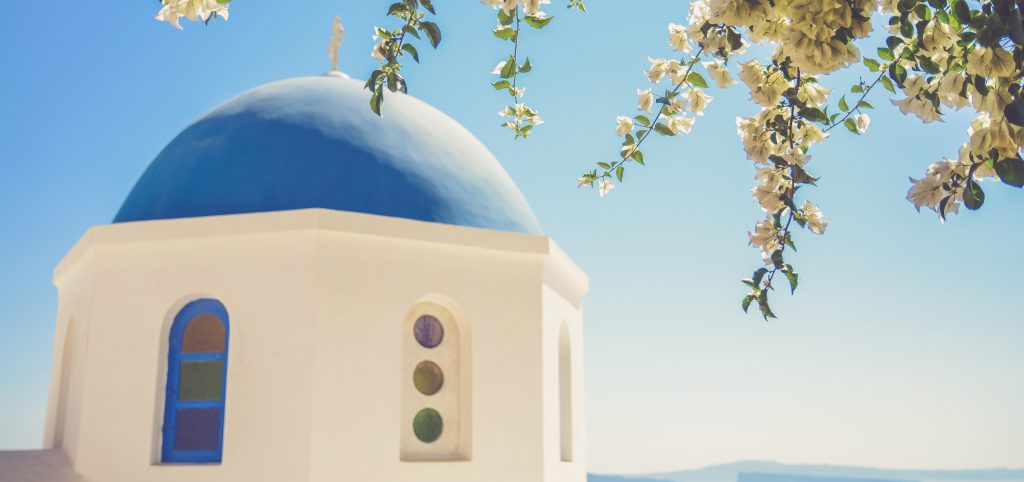If you think back at your history lessons at school: they where all about facts. But what if history is studied as a combination of historical facts combined with dreams, spirit possession rituals and dancing performances?
Question #1: How does history change if you look at dreams, and contemporary rituals?
This is a book review of Dreaming and Historical Consciousness in Island Greece (Click to buy and support Mindfunda)
by Professor Charles Steward PhD
University of Chicago Press; Reprint edition (March 31, 2017) ISBN-10: 0983532222 ISBN-13: 978-0983532224, Kindle $16.88, Hardcover $27.08, Paperback $22.50
Reviewed by Susanne van Doorn
To investigate this question, Charles Stewart, Professor of Anthropology at University College London, interprets history as a social relationship.

It is one of the books I recommended for you to read in this blog about interesting books to be published the first quarter of 2017. But this is actually a digitalized version of the first print in 2012. And I am so glad we get a chance to re-read and appreciate this book!
History: A Case Study
The book is a case study about the Greek village Kóronos. A village on the island of Naxos, dedicated to pilgrimage.
“During 1930, the dreams of Katerina Levaki, Nikiphoros Legacies, Evdoka, Marina and other oneirevamenoi (Susanne: this is a complicated word for people who explore dream worlds) shaped a myth. The myth validated dreaming as a conduit for receiving true messages from the beyond and the reality of the saints who actively communicated with individuals. Application of the term myths draws attention to the power of the narrative to shape and guide aspirations in Kóronos” (page 112).

The story, as told in this book starts in 1830 and ends in 1990, when a church is build in dedication of the Panagia, the All Holy or Virgin Mary
History: Let’s get Personal
While reading this book, I was thinking about the power of narratives.
Question #2: What is the story I tell myself? And how does this shape my dreams?
How do my dreams shape my narrative, my comprehension of the world and the social relationships I am dealing with?
In Kóronos, the Panagia came to visit in dreams of three shepherds…(that alone reminds you of the story of Christ), telling that there where icons buried. Those icons depicting her that had to be traced. This happened in the 1830’s, during the war of Greek Independence.

If you are living in a land that is struggling to regain independence, you need a mother. A benevolent mother that is there to protect and guide you .
Question 3: Have you ever had dreams that reflect the political situation in your land?
When reading this book, I remembered a dream I once had about an extreme right politician, Pim Fortuyn (Click to read more), in his grave… Mud was pouring all around him. In waking life he had been assassinated.
History: Mutual Dreaming
The second part of history examined in this case study is the period around 1930. In this time of economic depression, a number of people in the town of Kóronos started to receive dream messages again.
Marina and other dreamers dreamed about an icon of St. Anna, the mother of Mary. It was buried in a mountain and finding it would bring prosperity. In the 1930’s there was a great economic depression that affected a lot of people in a very negative way.
And at this time there is number of dedicated dreamers who tries to “tune into” finding this icon. Because we all need divine intervention.

Cartoon: Tim Whyatt
The dreamers would gather the villagers to come and listen to them, as they prophesied and tried to connect with the holy spirit.
This part of the book inspired me to ask question #4:
Is dreaming a social process? Let me know your answers in the comments.
History: Building the Church
In the mid ’90’s of last century the dreams in the city of Kóronos led to the building of the church of Argokoli

Photo Nayta Kuinka
This book shows you how perceptions of temporality and caution went from prophetic in the years round 1830, to apocalyptic in the period round 1930, to rational and historicist in 1990.
CONCLUSION
PRO
- This book suggests that dreams are a mode to discover novel information about the past;
- Charles Stewart has done thorough research;
- Especially interesting is his study of the 1930 dream diaries;
- If you are, like me, interested in dreams, this book will be a wealth of information;
- This book makes you aware that there is a recursive relationship between events and structures, that is reflected in dreams.
CON
- Sometimes Charles says the same thing in different words. Eloquent words, nonetheless, but the point has already come across.
Mindfunda verdict:
8/10
Our Current Courses (Click to find out More)
Sign up for our free e-book: 10 easy ways to instantly improve your dream memory



This was most interesting Susanne thank you. You ask the question “Is dreaming a social process?” Are you asking: do we tap into the collective sometimes when we dream? If this is your question I would say yes – we are all influenced in some way or the other by outer events, some personal others less directly personal as in political goings-on. We ‘tune in’ as you say … and a great gift is to be able to tune in to the inner …
The images are lovely –
Hallo Susan, thank you for your comment. I think that we are able to “pick up” things about our social tribe. Parents, for instance can dream about an illness of a child, months and sometimes years before it manifests in the making world.
And dreams on the verge of prediction are part of the discussion in this book.. Charles Sterwart tells in the book about how people in Greece ask him if he believes in dreams, only later on he realises that they ask him if a dream can accurately predict a
possible future. I am so glad that you mention the collective unconscious, because I like to think that we “tap” into it the moment we (day)dream. I’s like to think that this collective unconsciousness is our mutual human brain energy. It is a romantic, unscientific idea, i know. But it really resonates with me.